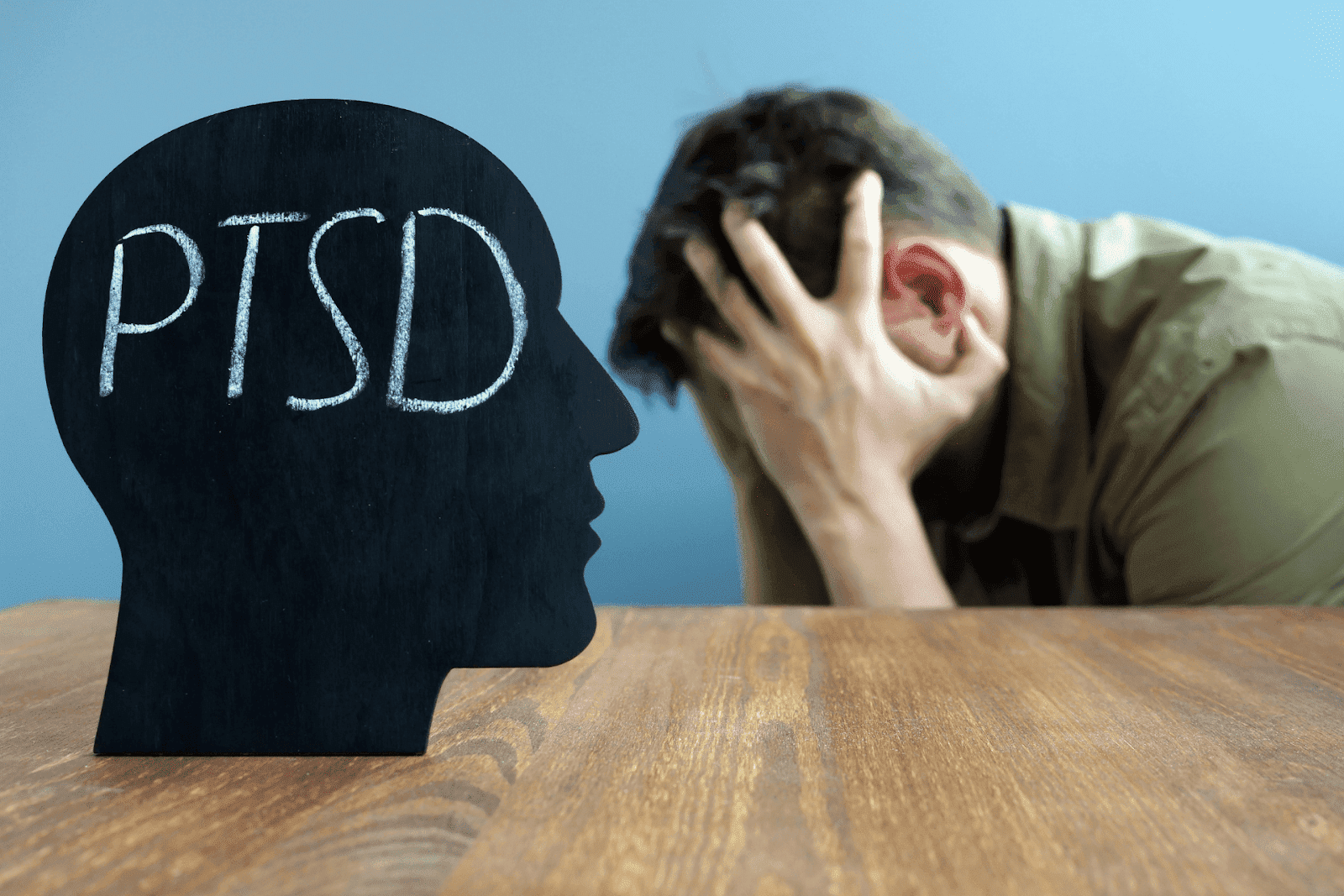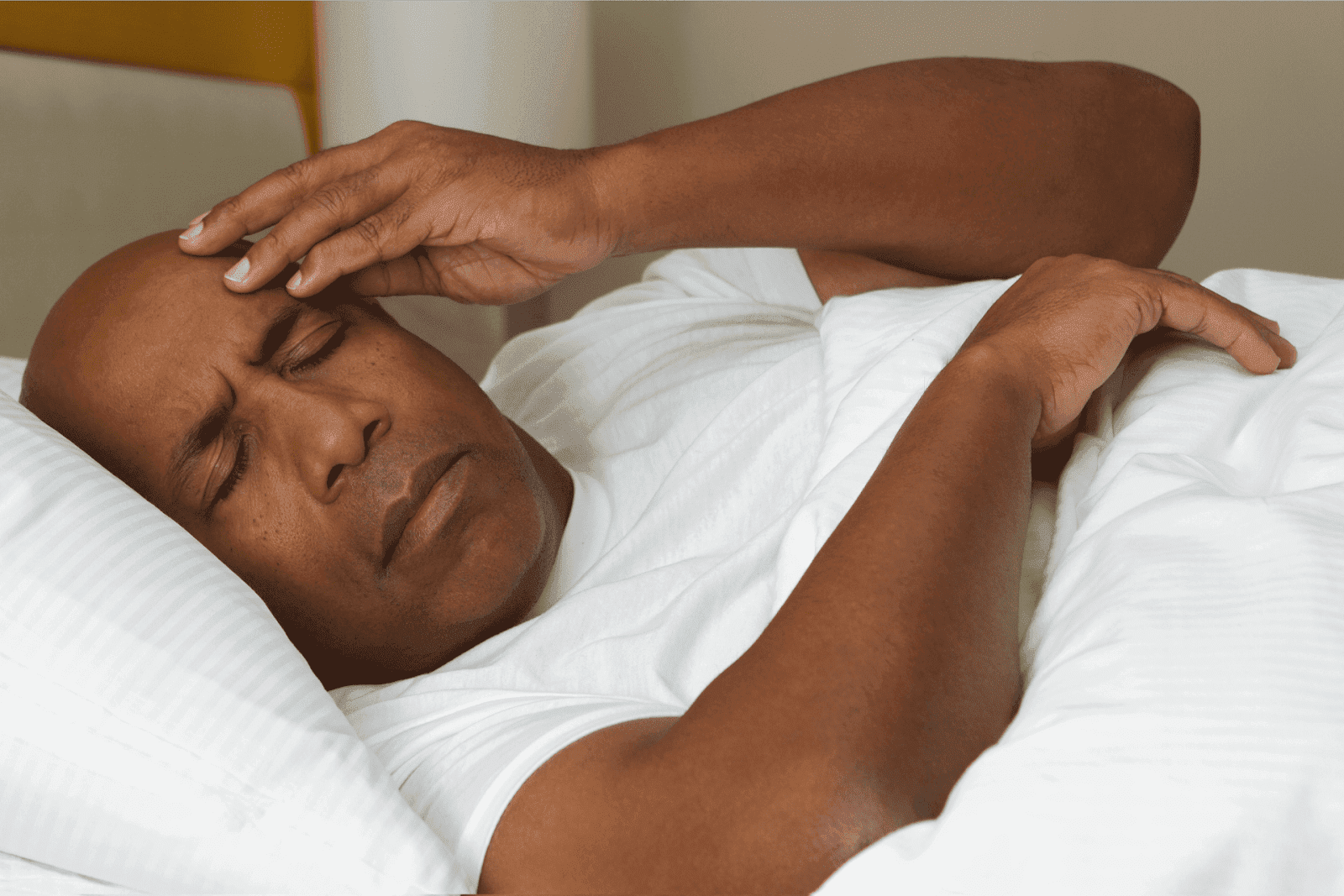Experiencing trouble sleeping after a traumatic event is a common and distressing symptom that many people face. Post-Traumatic Stress Disorder (PTSD) is a mental health condition triggered by witnessing or experiencing traumatic events, and sleep disturbances are among its most challenging symptoms. Understanding the connection between trauma, PTSD, and sleep difficulties is crucial for anyone struggling with these issues or supporting someone who is.
This comprehensive guide explores what PTSD is, why trauma affects sleep, how to recognize symptoms, and what treatment options are available, including innovative telehealth solutions like Doctronic.ai that make expert care accessible and affordable.
 What Is PTSD and How Does It Affect Sleep?
What Is PTSD and How Does It Affect Sleep?
Understanding PTSD
Post-Traumatic Stress Disorder (PTSD) is a psychiatric disorder that can occur in people who have experienced or witnessed a traumatic event such as natural disasters, serious accidents, combat, sexual assault, or other life-threatening situations. While many people experience some distress after trauma, PTSD is characterized by persistent and severe symptoms lasting more than a month and significantly impairing daily functioning.
According to the National Center for PTSD, about 7-8% of the U.S. population will experience PTSD at some point in their lives, with women being more likely than men to develop the disorder. The condition involves a complex interplay of emotional, cognitive, and physiological responses to trauma. Symptoms can manifest in various ways, including intrusive thoughts, emotional numbness, and avoidance behaviors, which can complicate an individual's ability to engage in daily activities and maintain relationships. The stigma surrounding mental health can also prevent individuals from seeking help, perpetuating their suffering.
The Link Between Trauma and Sleep Disturbances
Sleep problems are among the hallmark symptoms of PTSD. These disturbances can include difficulty falling asleep, frequent awakenings, nightmares, and restless or non-restorative sleep. Research shows that 70-90% of individuals with PTSD report some form of sleep disruption.
Why does trauma affect sleep so profoundly? Trauma can cause hyperarousal, which is a state where the body remains in a heightened state of alertness even when safe. This hypervigilance makes it difficult for the brain and body to relax enough to fall asleep or stay asleep. Nightmares related to the traumatic event are also common, often replaying distressing memories and further disrupting rest. The impact of these sleep disturbances extends beyond mere fatigue; they can exacerbate other PTSD symptoms, leading to a vicious cycle of anxiety and sleeplessness. Furthermore, chronic sleep deprivation can lead to a range of health issues, including weakened immune function and increased susceptibility to chronic conditions such as cardiovascular disease, highlighting the importance of addressing sleep in the treatment of PTSD.
Additionally, the relationship between PTSD and sleep is bidirectional; not only can trauma lead to sleep disturbances, but poor sleep can also worsen PTSD symptoms. Individuals may find themselves trapped in a cycle where anxiety about sleep leads to increased stress, which in turn intensifies their PTSD symptoms. This connection underscores the need for comprehensive treatment approaches that address both trauma and sleep issues, such as cognitive-behavioral therapy for insomnia (CBT-I) and other therapeutic interventions aimed at improving sleep hygiene. Understanding this intricate relationship is crucial for developing effective strategies to support those affected by PTSD.
Recognizing Symptoms of PTSD-Related Sleep Trouble
Common Sleep-Related Symptoms
When trouble sleeping follows trauma, it’s important to recognize the specific symptoms that might indicate PTSD. These include:
Insomnia: Difficulty falling asleep or staying asleep throughout the night.
Nightmares: Recurrent, distressing dreams related to the traumatic event.
Night Sweats: Waking up drenched in sweat, often linked to anxiety or nightmares.
Restless Sleep: Tossing and turning, feeling unrested despite spending enough time in bed.
Early Morning Awakenings: Waking up too early and being unable to return to sleep.
Other PTSD Symptoms to Watch For
Sleep troubles rarely occur in isolation. PTSD often includes other symptoms such as:
Intrusive Memories: Flashbacks or unwanted memories of the trauma.
Avoidance: Steering clear of reminders of the traumatic event.
Negative Changes in Mood and Cognition: Feelings of guilt, shame, or detachment from others.
Hyperarousal: Being easily startled, feeling tense, or having angry outbursts.
If these symptoms persist for more than a month and interfere with daily life, it’s important to seek professional help.
Understanding the interplay between sleep disturbances and PTSD is crucial for effective management. Research indicates that individuals with PTSD may experience a heightened state of arousal, which can significantly disrupt the sleep cycle. This heightened arousal can lead to an increased production of stress hormones, making it even more challenging to achieve restful sleep. Moreover, the relationship between sleep and mental health is bidirectional; poor sleep can exacerbate PTSD symptoms, creating a vicious cycle that can be difficult to break.
In addition to the psychological impact, sleep disturbances can also have physical repercussions. Chronic sleep deprivation can lead to a weakened immune system, increased risk of cardiovascular issues, and difficulties with concentration and memory. As such, addressing sleep issues in individuals with PTSD is not only vital for emotional well-being but also for overall health. Therapeutic interventions, such as cognitive-behavioral therapy for insomnia (CBT-I) or mindfulness practices, can be beneficial in breaking this cycle and promoting healthier sleep patterns.
Why Addressing Sleep Issues in PTSD Is Crucial
Sleep is foundational to both mental and physical health. For people with PTSD, untreated sleep problems can worsen other symptoms and reduce quality of life. Poor sleep can impair memory, concentration, and emotional regulation, creating a vicious cycle where daytime distress leads to nighttime wakefulness, which in turn exacerbates PTSD symptoms.
Research suggests that improving sleep can significantly reduce PTSD severity and improve overall recovery. Addressing sleep disturbances early on can prevent chronic health problems such as depression, anxiety, cardiovascular disease, and impaired immune function.
Moreover, the relationship between sleep and PTSD is complex and multifaceted. Many individuals with PTSD experience nightmares or intrusive thoughts that disrupt their sleep patterns, leading to a heightened state of alertness and anxiety. This hyperarousal can make it difficult to fall asleep or stay asleep, further perpetuating the cycle of distress. Therapeutic interventions, such as cognitive-behavioral therapy for insomnia (CBT-I), have shown promise in helping individuals manage these sleep disturbances, allowing them to reclaim restful nights and improve their overall mental health.
Additionally, the role of sleep hygiene cannot be overlooked. Establishing a consistent sleep routine, creating a calming bedtime environment, and limiting exposure to screens before bed can all contribute to better sleep quality. For those with PTSD, incorporating relaxation techniques such as mindfulness meditation or deep breathing exercises can also be beneficial. These practices not only promote better sleep but can also serve as coping strategies during the day, helping individuals manage their symptoms more effectively and fostering a sense of control over their mental health journey.
Effective Treatments for PTSD-Related Sleep Problems
Therapeutic Approaches
Several evidence-based treatments target PTSD and its associated sleep difficulties:
Cognitive Behavioral Therapy for Insomnia (CBT-I): This structured therapy helps change thoughts and behaviors that interfere with sleep, promoting healthier sleep habits.
Imagery Rehearsal Therapy (IRT): Designed to reduce nightmares by having patients rewrite and rehearse less distressing versions of their dreams.
Trauma-Focused Therapies: Such as Eye Movement Desensitization and Reprocessing (EMDR) and Prolonged Exposure Therapy, which address the root trauma and reduce PTSD symptoms overall.
Medications
In some cases, medications may be prescribed to help manage PTSD symptoms and improve sleep. These can include certain antidepressants, prazosin for nightmares, or sleep aids. Medication should always be used under the guidance of a healthcare professional to balance benefits and risks.
Self-Care and Lifestyle Changes
Alongside professional treatment, several self-care strategies can improve sleep quality:
Maintain a consistent sleep schedule.
Create a relaxing bedtime routine.
Avoid caffeine, nicotine, and heavy meals close to bedtime.
Limit screen time before sleep to reduce blue light exposure.
Practice relaxation techniques such as deep breathing, meditation, or gentle yoga.
Accessing Care for PTSD and Sleep Issues: The Role of Telehealth
Seeking help for PTSD and sleep disturbances can sometimes feel overwhelming, especially when access to specialized care is limited. This is where telehealth services have transformed the landscape of mental health treatment.
Doctronic.ai is a cutting-edge telehealth platform revolutionizing direct-to-patient care with AI-powered primary care and telehealth video visits. With over 10 million users and 24/7 availability across all 50 states, Doctronic offers an accessible, affordable, and convenient way to get expert medical advice and treatment recommendations from the comfort of home.
Why Choose Doctronic for PTSD and Sleep Concerns?
Doctronic’s AI doctor synthesizes the latest peer-reviewed medical research to provide personalized, comprehensive answers to health questions in seconds. Unlike traditional telehealth services, Doctronic’s AI remembers your history and offers care that feels truly personal and continuous. For those struggling with PTSD-related sleep issues, this means faster access to guidance and treatment options without the wait times or high costs often associated with mental health care.
Additionally, Doctronic provides affordable telehealth video visits with licensed doctors for under $40, making it easier than ever to receive a diagnosis, discuss symptoms, and explore treatment plans tailored to your needs.
 When to Seek Immediate Help
When to Seek Immediate Help
While many PTSD symptoms and sleep difficulties can be managed with appropriate care, certain situations require urgent attention. If you or someone you know experiences any of the following, seek emergency help immediately:
Thoughts of self-harm or suicide.
Inability to care for oneself or perform daily activities.
Severe panic attacks or psychotic symptoms.
Substance abuse that endangers health or safety.
For non-emergency concerns, Doctronic.ai provides a safe and accessible way to start addressing symptoms and get connected to the right care.
Moving Forward: Hope and Healing Are Possible
Living with PTSD and its accompanying sleep troubles can be incredibly challenging, but effective treatments and support are available. Understanding the nature of PTSD, recognizing symptoms early, and seeking timely care can make a significant difference in recovery.
Innovations in telehealth, such as Doctronic.ai, are breaking down barriers to care, providing faster, smarter, and more personal medical support. Whether you’re looking for immediate answers or ongoing treatment, these tools empower patients to take control of their health journey.
Remember, you are not alone, and help is within reach. Prioritizing your sleep and mental health is a vital step toward healing and reclaiming a fulfilling life after trauma.
Get Immediate Support with Doctronic
If you're struggling with PTSD and sleep issues, immediate help is just a click away. Doctronic, the #1 AI Doctor, offers free AI doctor visits that provide you with quick, accurate, and personalized medical advice. Our telehealth video visits with licensed doctors are available 24/7 in all 50 states, ensuring that you receive the care you need, whenever you need it. Don't let sleepless nights and PTSD symptoms control your life. Skip the line. Talk to an AI Doctor Now, for free.



 What Is PTSD and How Does It Affect Sleep?
What Is PTSD and How Does It Affect Sleep? When to Seek Immediate Help
When to Seek Immediate Help